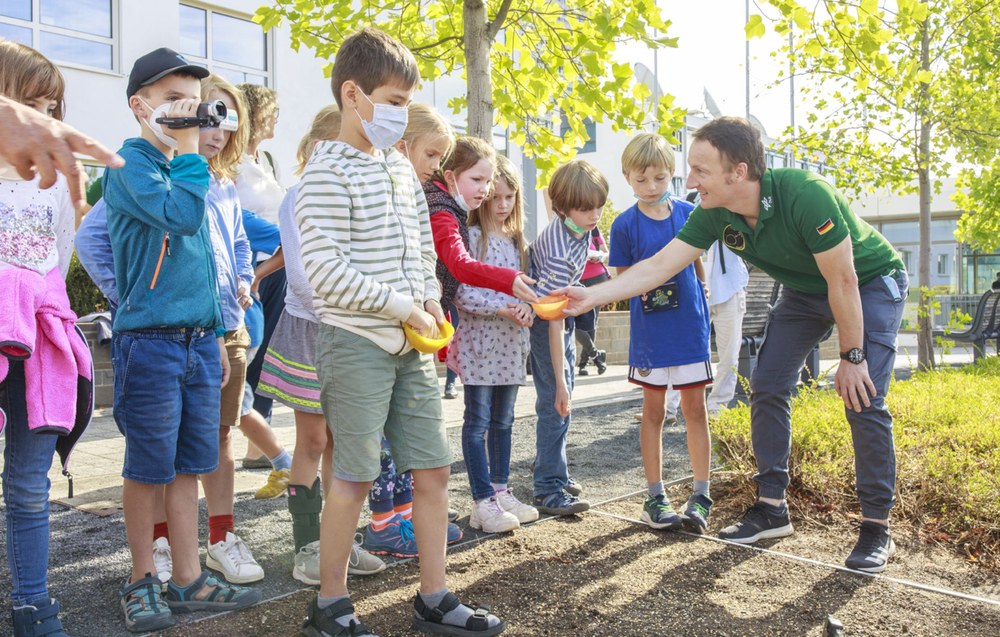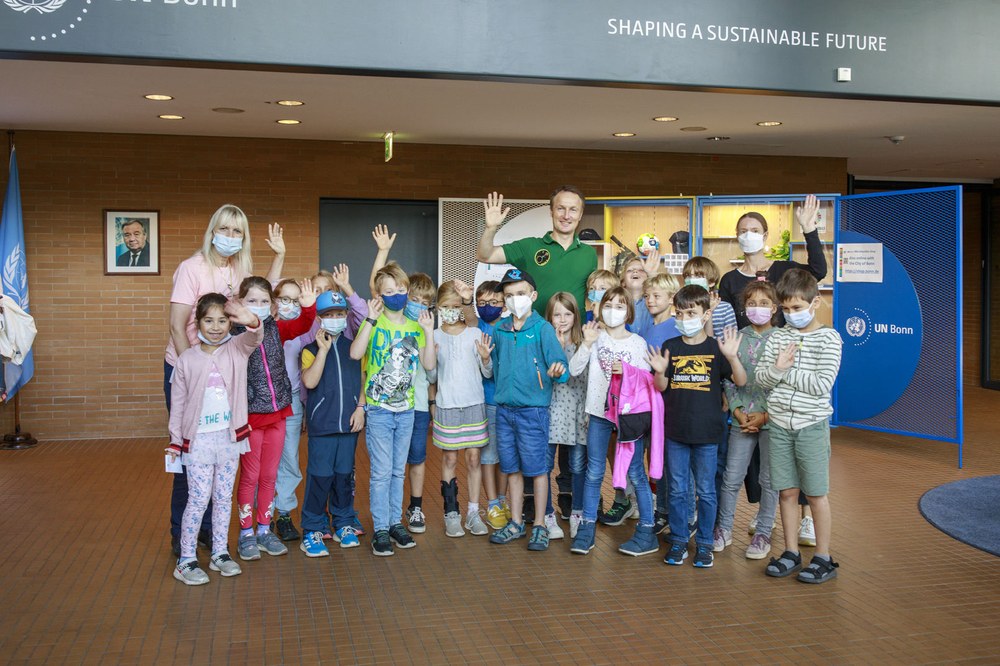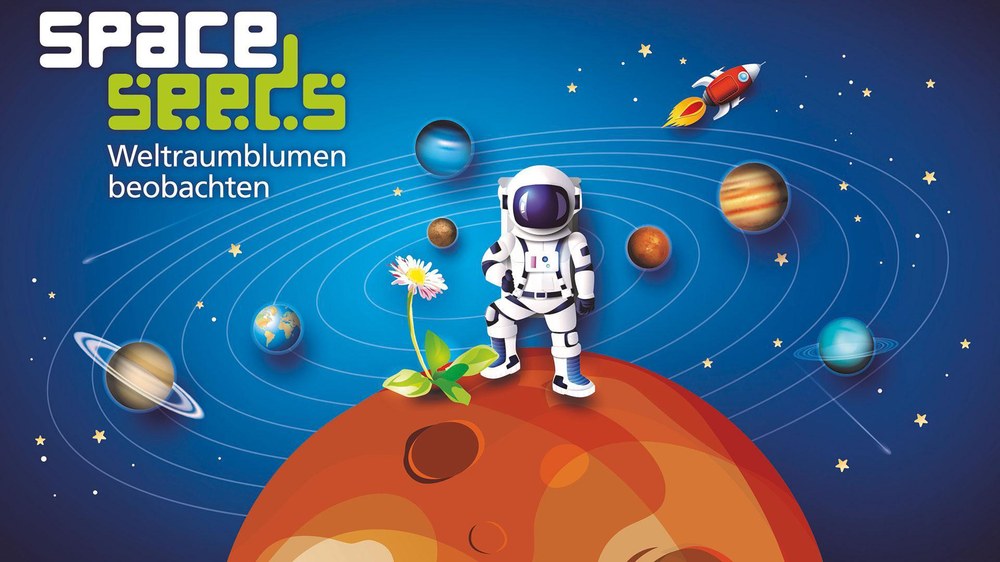Space seeds thrive at the United Nations Campus



- On 7 September 2022, a primary school class planted wildflower seeds that went to space together with German ESA astronaut Matthias Maurer on the UN Campus.
- Space Seeds 2.0 is a school project of the German Space Agency at DLR as part of the 'Cosmic Kiss' mission.
- The seeds were on board the ISS with Matthias Maurer.
- Focus: Space, sustainability, education & outreach
When primary school children become sustainability researchers
What is biodiversity? How do flowers affect us and the environment? And how are they related to spaceflight? For primary school children to be able to investigate these exciting questions, the German Space Agency at DLR (Deutsche Raumfahrtagentur im Deutschen Zentrum für Luft- und Raumfahrt; DLR) sent two kilograms of wildflower seeds to the International Space Station ISS aboard a Falcon 9 rocket (SpaceX CRS-23) from the Kennedy Space Center in Florida on 29 August 2021. These 'space seeds' were on the International Space Station (ISS) together with German European Space Agency (ESA) astronaut Matthias Maurer during his Cosmic Kiss mission. They landed safely back on Earth on 24 January 2022. On 7 September 2022, the astronaut and a primary school class planted a small portion of these seeds on the UN Campus in Bonn in cooperation with UN-SPIDER.
"It is exciting for us to learn how the journey into space affected the wildflower seeds and the school children are helping us to find out. When the seeds return to Earth, they will be examined by more than just scientists – they will also be investigated by primary school children. These young researchers are thus making an important contribution to the protection of Earth and biodiversity and to a more sustainable future," emphasises Maurer following the planting in Bonn. Participation is open to working groups, research groups and school classes in the third and fourth grade in the school year 2022/2023 (with a minimum of 12 people). Registration is possible until 13 January 2023. All information about the competition on our Space2School website.
Wildflowers – an indispensable habitat
Without plants, Earth would no longer be worth living on in the future. Wildflowers are a very important part of vegetation and an irreplaceable habitat for numerous animals and thus for us humans. Many species have become rare or even extinct. Without flowers, wild bees and other insects cannot meet their food needs. Without them, our crops and trees can no longer be pollinated and will soon no longer bear fruit – a vicious circle. "Unfortunately, seeing Earth from the ISS has shown me that we don’t take care of our planet. We harm the climate, pollute the oceans with plastic, clear our forests and leave too little space for wildflowers. We must take action now to protect our planet. That is what the primary school children are doing in the Space Seeds 2.0 project," emphasises Maurer.
"For this reason, we have addressed this topic and, with Space Seeds 2.0, have now presented the importance of flora for our planet in primary school classrooms for the second time. We want to raise children's awareness of this topic at a young age and draw their attention to the United Nations' Sustainable Development Goals (SDGs)," explains Space Seeds 2.0 project manager Alexandra Herzog at the German Space Agency at DLR.
Wildflowers instead of vegetables again
How did the project actually come about? "After watching an ARTE documentary about wildflower rescuer Ernst Rieger in 2016, I came up with the idea to fly wildflower seeds into space instead of vegetable seeds. I called Mr Rieger to convince him of the Space Seeds project. Turns out I didn't have to convince him at all. He was immediately on board, wanting to draw attention to species protection with the space seeds. I liked his commitment and his courage to stand up for biodiversity and the preservation of wildflowers," says Volker Schmid, ISS mission manager at the German Space Agency at DLR and the person who came up with the idea for Space Seeds.
Space Seeds 2.0 – observing space flowers
In the Space Seeds 2.0 school competition, primary school children can conduct research with wildflower seeds that were on the ISS together with ESA astronaut Matthias Maurer. How did the seeds survive the journey into space? Primary school children who will be attending third and fourth grade in the 2022/23 school year are eligible to participate. In addition to accompanying teaching material, the schools will receive the ‘space seeds’ and comparison seeds for sowing and monitoring. In this way, children become researchers themselves and at the same time become sensitised to the topic of biodiversity and the protection of our planet. Applications for the competition can be submitted from 13 September 2022 at www.Space2School.de/spaceseeds.
